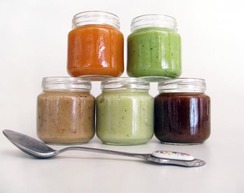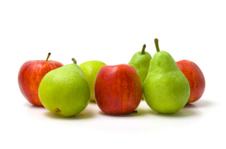 When it comes time to introduce solids to your little one, it can be confusing! There is so much information out there, and it's hard to know where to start, or when to start! So here are some of the basics! When to start: Though some practitioners may recommend beginning little ones on foods around 4 mos, I would recommend pushing off until as close to 6 mos as possible. Babies' digestive tracts are still developing but are almost fully matured around 6 mos. By delaying food intro until then, can help reduce the risk of developing food sensitivities. However, it's also important to follow babies lead. We introduced solids at 5.5 mos after many cues from Lily that she was ready, my favourite, opening her mouth along with our bites! What to start with: This is probably the most confusing part of food intro! And there is lots of info.....

How to Start: When baby seems ready pick a day and plan it out.
Disclaimer: Naturopathic Doctors strive to provide individualized health care. The information contained in these topics is not intended nor implied to be a substitute for professional medical advice, it is provided for educational purposes only. This information shouldn’t take the place of seeing an ND for individualized health recommendations.
0 Comments
Leave a Reply. |
AuthorWrite something about yourself. No need to be fancy, just an overview. Archives
August 2016
Categories
All
|


 RSS Feed
RSS Feed
